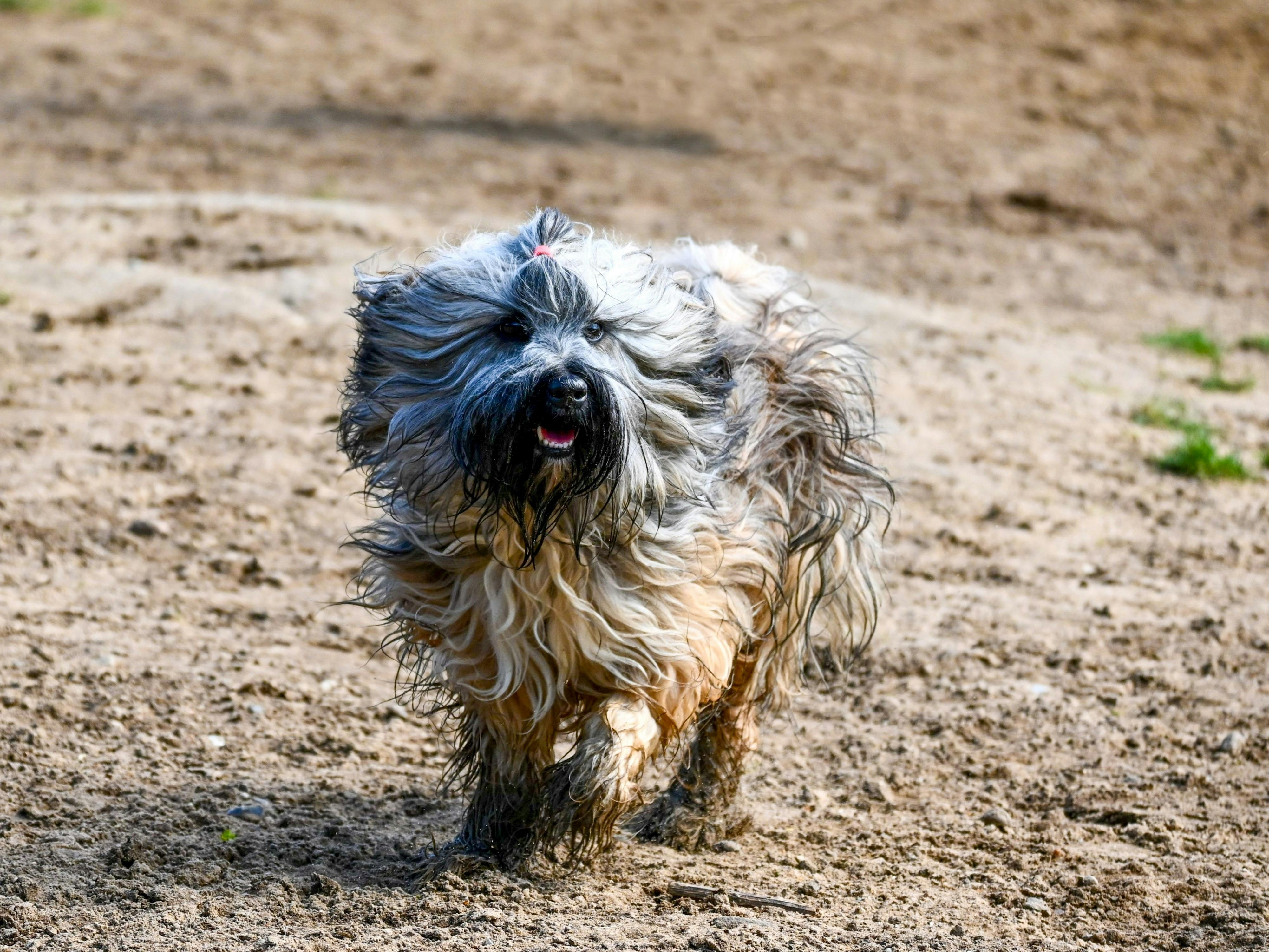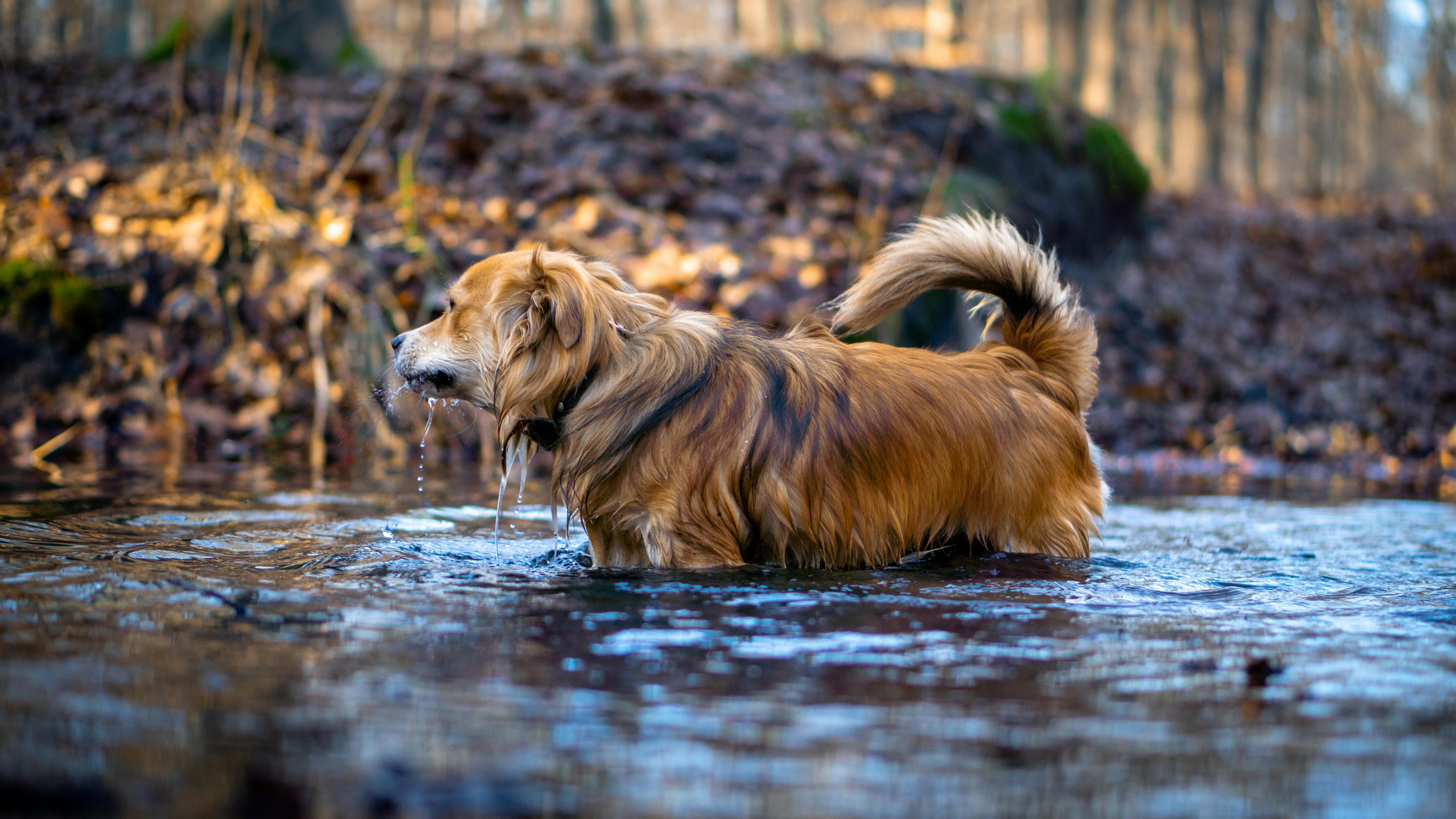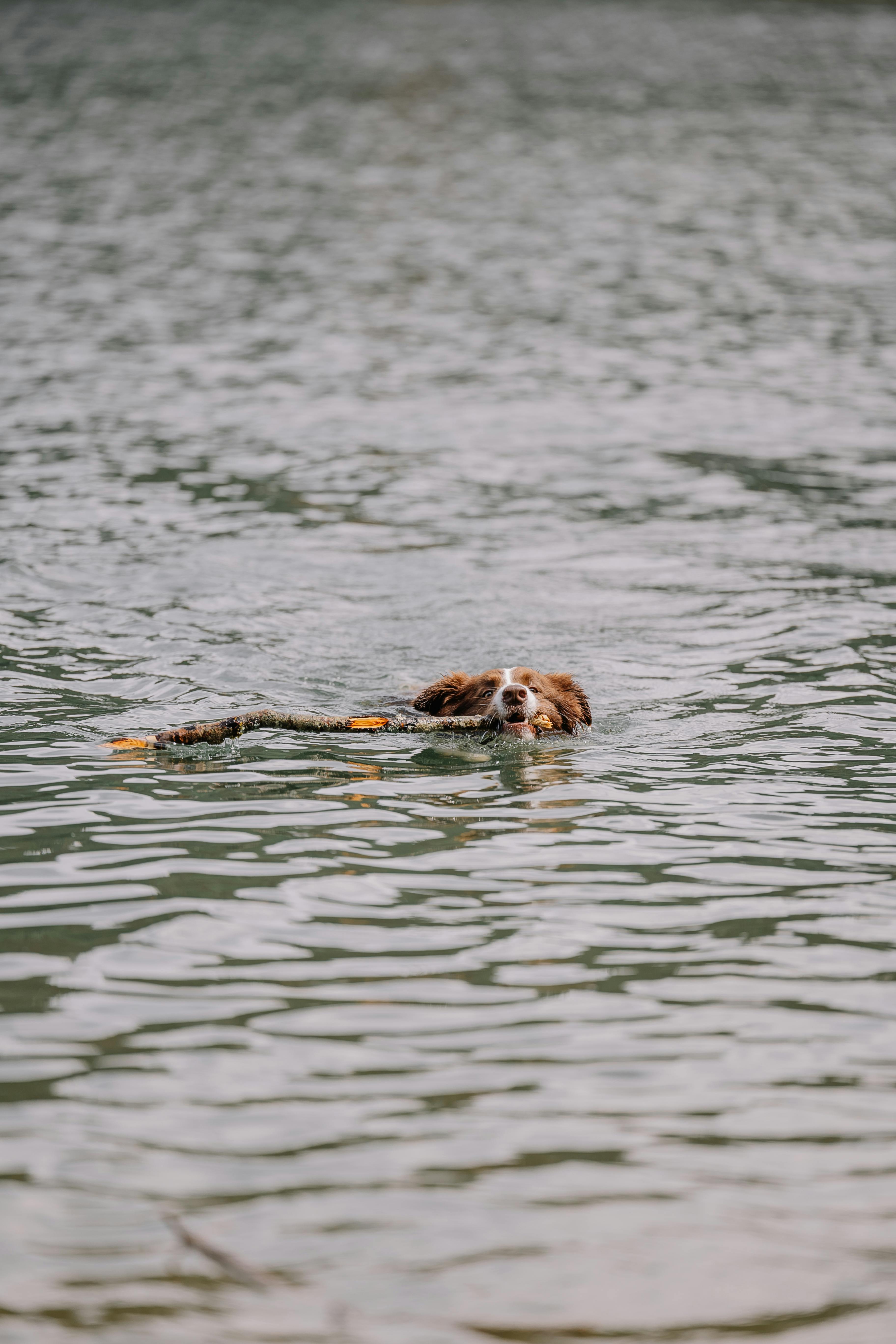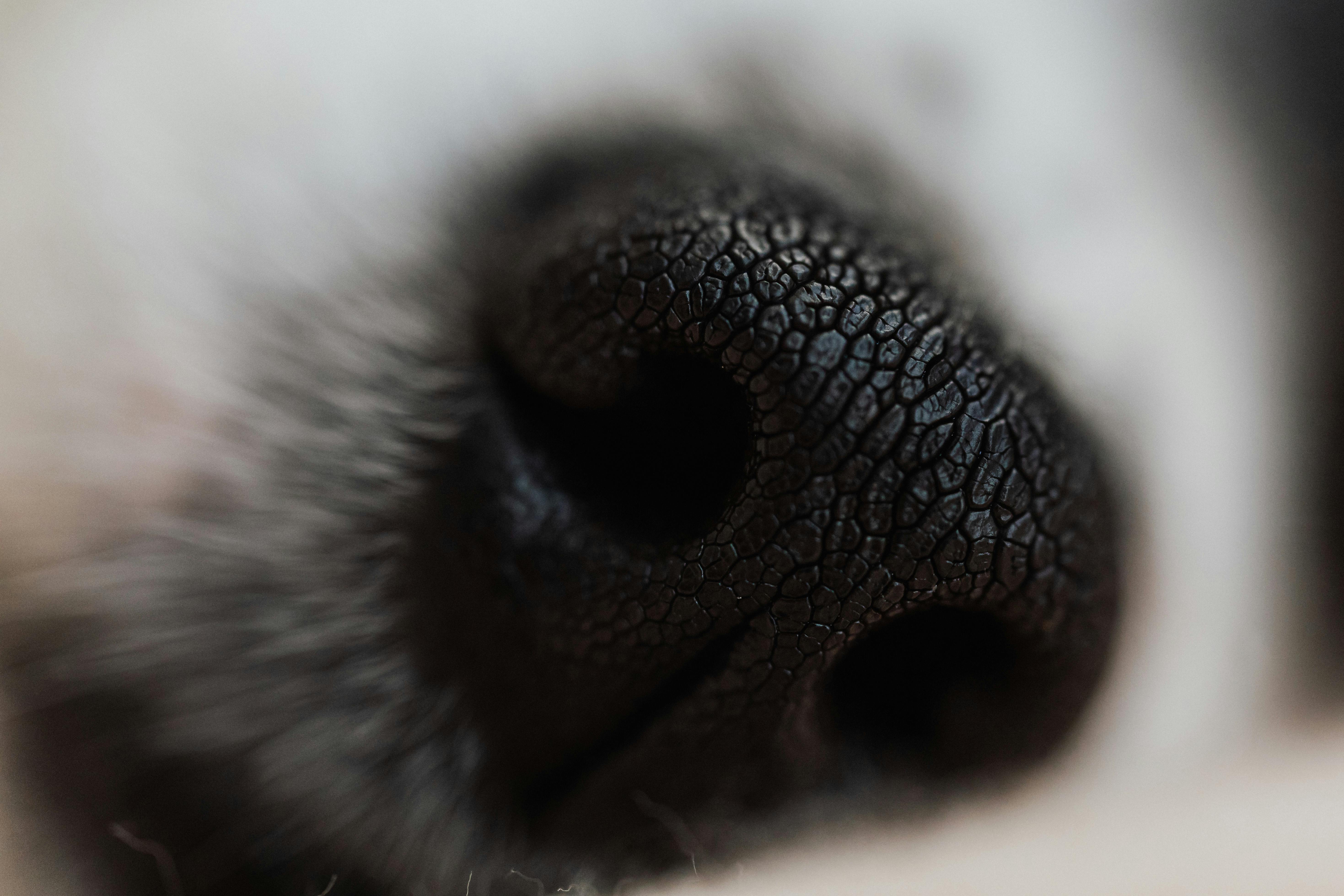Have you ever wondered why do dogs have wet noses? This intriguing question has fascinated pet owners and animal lovers alike. The truth behind this phenomenon is not only captivating but also reveals a lot about our furry friends. A dog’s nose is often moist, which plays a crucial role in their sense of smell. But what else does it mean when you notice your pup’s wet nose? Could it be a sign of health or happiness? In this blog post, we will dive deep into the fascinating world of canine biology to uncover the secrets of those adorable, wet noses. Not only will we explore the science behind a dog’s wet nose, but we will also discuss how it relates to their emotions and instincts. Are you ready to understand more about your dog’s unique features? Discover the answers to why dogs have wet noses and learn how it impacts their behavior! This is not just a trivial detail; it’s an essential aspect of your dog’s well-being and communication. Join us on this exciting journey to unlock the mysteries of your pet’s nose, and you might be surprised by what you find!
The Science Behind Why Dogs Have Wet Noses: Understanding Their Unique Physiology

If you ever wondered why dogs have wet noses, you’re not alone. Many pet owners have noticed their furry friends’ noses are usually moist, and it raises questions. What’s the reason behind this unique trait? Is it just a quirky characteristic, or does it hold some deeper significance? Let’s dive into the science behind it and uncover the fascinating truth of why dogs have wet noses.
Understanding Dog Physiology
Dogs, like humans, are mammals, but their physiology is a bit different. The wetness of a dog’s nose is primarily due to the presence of mucous membranes that covers it. When dogs are sniffing around, they can absorb scents more effectively. Here’s a breakdown of the reasons:
Enhanced Smell: A wet nose can help to trap scent particles from the air, allowing dogs to have a sharper sense of smell. This is vital for their hunting instincts and social interactions.
Thermoregulation: Dogs do not sweat like humans. Instead, they regulate their body temperature through their noses and panting. A wet nose can help cool their bodies.
Health Indicator: A wet nose is often associated with a healthy dog. If a dog’s nose is dry or warm, it might indicate illness, dehydration, or other health issues.
The Science of Moisture
Dogs secrete a thin layer of mucus on their noses, which is critical for various reasons. The mucus contains different proteins and enzymes that help with scent detection. Here’s how it works:
Scent Absorption: When dogs sniff, the moisture on their noses captures odor molecules. This enhances their olfactory capabilities, making them extraordinary scent detectors.
Cooling Mechanism: The moisture evaporating from the nose cools the blood vessels, which helps regulate body temperature, especially on hot days.
pH and Bacteria: A dog’s nose can also have bacteria, and the wetness helps maintain a balanced pH, which is essential for their overall health.
Historical Context
The wet nose phenomenon isn’t just a modern observation. Throughout history, wet noses have been noted across various cultures. Ancient civilizations, like the Egyptians, revered dogs for their hunting and guarding abilities, often highlighting their unique physiological traits. Dogs were seen as companions with distinct attributes, and the wet nose feature was recognized as part of their charm and utility.
Fun Facts About Dogs’ Noses
Let’s consider some interesting facts about dogs and their noses:
Surface Area: A dog’s sense of smell is about 10,000 to 100,000 times more acute than that of humans, largely due to the extensive surface area of their nasal cavities.
Nose Prints: Just like human fingerprints, each dog has a unique nose print. This can be used for identification purposes.
Temperature Variation: A dog’s nose temperature can vary throughout the day, depending on their activity level and health status.
Comparison With Other Animals
Dogs aren’t the only animals with wet noses. Other creatures have similar adaptations. Here’s a quick comparison:
| Animal | Nose Type | Purpose |
|---|---|---|
| Dogs | Wet and Cool | Scent absorption, cooling |
| Cats | Wet and Warm | Similar scent absorption |
| Pigs | Wet and Moist | Foraging and rooting |
| Elephants | Large and Moist | Temperature regulation |
Practical Examples
When dogs are playing outside, you might notice their noses getting wetter. This is because they are actively sniffing and exploring, and their noses are working hard to capture all the interesting scents around them. If you observe a dog that has a persistently dry nose, it might be worth checking in with a vet, as it could indicate dehydration or illness.
Moreover, you might notice that certain breeds have more moisture on their noses than others. For instance, bloodhounds, known for their excellent sense of smell, tend to have particularly wet noses compared to more laid-back breeds like bulldogs.
Understanding why dogs have wet noses gives pet owners valuable insight into their health and behavior. It’s a reminder of the wonderful complexity of our canine companions and the small details that make them so special.
Next time you give your dog a scratch behind the ears or a belly rub, take a moment to appreciate their wet nose. It’s not just an adorable quirk; it’s a fascinating aspect of their biology that plays a significant role in their lives. Embrace the unique features of your pet, knowing that their wet nose is part of what makes them the incredible animals they are.
5 Surprising Benefits of Your Dog’s Wet Nose You Probably Didn’t Know

Have you ever noticed how your dog’s nose is always so wet? You may think it’s just a quirk, but it actually serves several important purposes. In this article, we dive into the often overlooked, but fascinating world of why dogs have wet noses. You’re gonna discover 5 surprising benefits of that wet little nose you probably didn’t know about.
The Science Behind Wet Noses
Dogs have wet noses for a reason. The moisture on their noses help enhance their sense of smell, which is already astonishingly powerful. When dogs sniff around, the wetness on their nose captures scent particles, making it easier for them to identify different smells. This wetness is typically due to a combination of mucus and the moisture in the air.
5 Surprising Benefits of Your Dog’s Wet Nose
Enhanced Sense of Smell
- Dogs have about 220 million scent receptors compared to humans’ 5 million. The wet nose helps to better absorb scent molecules, therefore improving their olfactory abilities. This is why dogs are often used in search and rescue missions, detection work, and even medical alerts.
Temperature Regulation
- The wetness of a dog’s nose also plays a role in regulating their body temperature. When dogs pant, they lose moisture, and their nose helps in cooling their body down by evaporating the moisture. It’s one of the ways they manage to avoid overheating, especially during hot weather.
Health Indicator
- A wet nose can be a sign of a healthy dog. While not an absolute indicator, a healthy dog usually has a cool, moist nose. If it’s dry or warm, it could indicate illness or dehydration. Keeping an eye on your dog’s nose can help you catch potential health issues early.
Scent Communication
- Dogs are social animals and often communicate with each other through scent. A wet nose is important for gathering pheromones and other scent signals from their environment. When dogs greet each other, they often sniff each other’s noses, which is a way of exchanging information.
Attractiveness Factor
- Believe it or not, a wet nose can make your dog more appealing to others. A moist nose often signals vitality and health, making dogs with wet noses more likely to be approached and petted by strangers and friends alike.
Why Do Dogs Have Wet Noses? A Quick Overview
- Dogs have wet noses primarily to enhance their sense of smell.
- The moisture helps with temperature regulation.
- A wet nose can serve as an indicator of a dog’s health.
- It plays a crucial role in communication through scent.
- A wet nose makes dogs appear more attractive and healthy to others.
Fun Facts About Dog Noses
- Unique Patterns: Just like human fingerprints, every dog’s nose has a unique pattern of ridges and creases.
- Dogs Can Smell Emotions: Research shows that dogs can smell the different hormones released when humans are happy, sad, or scared.
- Dog Breeds: Certain breeds have a wetter nose than others. For example, Retrievers and Beagles often have more moisture compared to breeds like Bulldogs.
Practical Tips for Dog Owners
- Regular Checkups: Monitor your dog’s nose regularly. If you notice it becoming consistently dry or cracked, consult your veterinarian.
- Hydration: Keep your dog hydrated, especially in warm weather. Dehydration can lead to a dry nose.
- Nose Care: If your dog’s nose appears chapped, you can use dog-safe moisturizers to help keep it healthy.
Dogs are truly amazing creatures, and their wet noses are just one of the many fascinating aspects of their biology. Understanding why dogs have wet noses can help you appreciate your furry friend even more. Next time you give your dog a pet, take a moment to appreciate that wet little nose and all the benefits it brings. It’s not just a cute feature; it’s a vital part of what makes your dog, well, a dog!
Do All Dogs Have Wet Noses? Exploring Variations Across Breeds and Health Conditions

When you think about dogs, one of the most charming features they have is their wet noses. But have you ever wondered, do all dogs have wet noses? The answer may surprise you, as it varies not only between breeds but also due to health conditions. Let’s dive into the fascinating truth behind why dogs have wet noses, and what it all means for our beloved pets.
Why Do Dogs Have Wet Noses?
Dogs’ noses are wet for a few reasons, and it’s not just for show. The moisture helps enhance their sense of smell, which is way better than ours! Here’s how it works:
- Olfactory Enhancement: A wet nose helps trap scent particles in the air, allowing dogs to smell better.
- Temperature Regulation: Dogs can’t sweat like humans. Their noses help cool them down by releasing moisture.
- Health Indicator: A wet nose is often a sign of good health, but that’s not always the case.
Variations Across Breeds
Believe it or not, not all dogs have the same type of noses. Some breeds are known for having drier noses than others. Here’s a short list of breeds with notable variations:
- Labrador Retrievers: Typically have moist noses, which are great for their scent-tracking abilities.
- Bulldogs: Often have drier noses due to their unique skin folds, which can trap heat.
- Siberian Huskies: Generally have moist noses, but their fur can sometimes make it hard to tell.
- Poodles: They can have both wet and dry noses, depending on their overall health.
Health Conditions That Affect Nose Moisture
Sometimes, a dog’s nose can change from wet to dry for various reasons, which may indicate health issues. Here are some conditions to be aware of:
- Dehydration: If a dog isn’t drinking enough water, their nose might dry out.
- Fever: A high temperature can lead to a dry nose, signaling that something might be off.
- Autoimmune Diseases: Conditions like pemphigus can cause the nose to dry out and crack.
- Allergies: Allergies can also lead to changes in nose moisture.
Fun Facts About Dog Noses
Dog noses are more than just a cute feature. Here’s some fun trivia about what makes them special:
- Unique Prints: Just like human fingerprints, every dog’s nose print is unique.
- Thermal Sensors: Dogs can actually detect heat through their noses, helping them locate warm-blooded prey.
- Scent Memory: Dogs have an incredible scent memory, which is why they can recognize familiar smells even after a long time.
Comparing Dog Nose Characteristics
Let’s take a look at some common dog breeds and how their nose moisture varies:
| Breed | Typical Nose Moisture | Notes |
|---|---|---|
| Labrador Retriever | Wet | Excellent scent capabilities |
| Bulldog | Dry | Skin folds can lead to less moisture |
| Beagle | Wet | Known for their strong sense of smell |
| Dachshund | Mixed | Varies depending on health |
| Great Dane | Wet | Large size doesn’t affect moisture significantly |
What To Do If Your Dog’s Nose Is Too Dry
If you notice your dog’s nose is unusually dry, here’s a quick list of things you might consider doing:
- Check Hydration: Make sure your dog has access to fresh water.
- Vet Visit: If dryness persists, a visit to the vet can help rule out health issues.
- Humidifier: Using a humidifier in your home can help keep the air moist, benefiting your dog’s nose.
- Nose Balm: There are dog-safe balms available that can help hydrate a dry nose.
The Bottom Line
While most dogs do have wet noses, variations exist depending on breed and health conditions. Understanding why dogs have wet noses not only adds to our knowledge of canine biology but also helps us care for our furry friends better. Whether you’re a dog owner or just a dog lover, knowing the fascinating truths about our canine companions can deepen the bond you share. So next time you give your dog a scratch behind the ears, take a moment to appreciate that adorable, moist nose!
Wet Noses and Canine Communication: How Your Dog Uses Their Nose to Connect with You

Dogs have always been known for their incredible sense of smell. But have you ever wondered why do dogs have wet noses? This curious feature of our furry companions is more than just a cute quirk; it plays an important role in how they connect with us and understand the world around them. Let’s dive into the fascinating truth behind wet noses and canine communication, exploring how your dog uses their nose to bond with you and the science behind it.
The Science Behind Wet Noses
First off, a dog’s nose is a highly specialized organ. It contains millions of scent receptors — way more than humans have. While humans have about 5 million, dogs can have anywhere from 220 million to over 300 million! This makes their sense of smell around 40 times better than ours. But what does that have to do with wet noses?
- Moisture and Scent Detection: A wet nose helps dogs absorb scent molecules more effectively. When a dog’s nose is moist, it can trap more scent particles, giving them a better understanding of their surroundings.
- Temperature Regulation: Dogs cool themselves through their nose, which can help them stay calm and relaxed. A wet nose may also signal to other dogs that they’re healthy and ready to interact.
How Dogs Communicate With Their Noses
Dogs don’t just sniff for fun; they communicate with their noses in various ways. Their sense of smell is their primary way of gathering information. Here are a few key points:
- Scent Marking: Dogs often leave their own scent on objects by rubbing their noses against them. This is a way to communicate their presence to other dogs and establish territory.
- Social Bonding: When dogs greet each other, they often sniff each other’s noses and behinds. This behavior helps them learn about other dogs’ identities, health, and emotional states.
- Human Connection: Dogs also use their noses to connect with humans. When a dog nudges you with their nose, they’re often trying to get your attention or show affection.
The Importance of a Wet Nose
So, why do dogs have wet noses? The moisture on their noses not only enhances their ability to smell, but it also serves several other purposes:
- Health Indicator: A dog’s wet nose is often seen as a sign of good health. While a dry nose doesn’t always mean something’s wrong, a sudden change can indicate illness.
- Cooling Mechanism: Just like we sweat, dogs can also cool themselves down via their noses. This helps regulate their body temperature, especially in hot weather.
- Emotional Indicator: Dogs can express their emotions through their noses. A wet nose can mean they’re happy or excited, while a dry nose might suggest they’re stressed or anxious.
Fun Facts About Dogs’ Noses
- Unique Patterns: Just like human fingerprints, every dog’s nose print is unique. This means you could technically identify a dog by their nose!
- Scent Memory: Dogs can remember scents for years. They associate smells with experiences, which can affect their behavior towards people or places.
- Sniffing Speed: Dogs can sniff 20 times per second! This rapid sniffing helps them gather scent information incredibly quickly.
How to Care for Your Dog’s Nose
Keeping your dog’s nose healthy is important for their overall well-being. Here are some tips:
- Hydration: Make sure your dog has access to fresh, clean water. Hydration helps maintain a moist nose.
- Protection from Sunburn: Just like humans, dogs can get sunburned. Apply pet-safe sunscreen to their nose if they spend a lot of time in the sun.
- Regular Vet Check-ups: If you notice any changes in your dog’s nose, such as excessive dryness or cracks, consult with your veterinarian.
Understanding Your Dog’s Behavior
Observing your dog’s behavior can help you better understand how they communicate. Some signals include:
- Sniffing Around: If your dog is sniffing a lot, they might be exploring their environment or looking for something specific.
- Nudging You with Their Nose: This is often a sign they want attention or affection.
- Licking or Nosing Other Dogs: This behavior can indicate friendliness or submission.
The next time you wonder why do dogs have wet noses, remember that it’s not just for show. It’s a crucial part of how they interact with the world and with you. Your dog’s nose is a powerful tool for communication, understanding, and bonding. So cherish those moments when they nuzzle you with their wet nose, because it’s their way of saying they love you!
What’s the Relationship Between Wet Noses and a Dog’s Sense of Smell? Unveiling the Fascinating Link

Every dog owner has probably noticed their furry friend’s nose is often wet. But why do dogs have wet noses? It’s not just an adorable quirk of nature; it actually serves a purpose, closely linked to their incredible sense of smell. Let’s dive deeper into the fascinating relationship between wet noses and a dog’s olfactory abilities, revealing some truths that might surprise you.
The Science Behind Wet Noses
A wet nose is not just for looks — it plays a crucial role in how dogs interact with the world. First, let’s understand how a dog’s sense of smell works. Dogs have an extraordinary olfactory system, which is about 10,000 to 100,000 times more sensitive than humans. Their noses contain up to 300 million olfactory receptors, compared to a human’s mere 5 million.
Moisture Amplifies Smell: A wet nose helps to capture scent particles from the air. When a dog breathes in, the moisture on their nose helps to dissolve these particles, making it easier for their olfactory receptors to pick up and analyze the scents.
Temperature Regulation: Dogs lose heat through their noses. A wet nose can help cool their body down, which is particularly important in warm weather or after vigorous exercise.
Why Are Dog Noses Wet?
So, what causes a dog’s nose to be wet? There are several reasons and factors contributing to this phenomenon:
Mucus Secretion: The nasal passages of dogs produce mucus, which keeps their noses moist and aids in scent detection. The moisture helps trap scent molecules for better detection.
Environmental Factors: Dogs often lick their noses during grooming or when they’re curious about their surroundings. Rain or humidity can also contribute to the wetness.
Health Indicators: A wet nose is often a sign of a healthy dog, but it’s not the only indicator. A dry or warm nose might suggest dehydration or illness, but this isn’t always the case.
Common Myths About Dog Noses
Many myths exist surrounding the wetness of dog noses. Let’s debunk a few:
Myth 1: A cold, wet nose means a dog is healthy.
- Truth: While a wet nose can indicate good health, it’s not a definitive measure. Dogs can be sick and still have a wet nose.
Myth 2: A dry nose always means illness.
- Truth: Dogs can have dry noses for various reasons, such as sleeping or being in a dry environment.
Myth 3: Dogs can smell everything perfectly.
- Truth: While dogs have an incredible sense of smell, they can be distracted or overwhelmed by strong scents, just like humans can become overwhelmed by loud noises.
How Wet Noses Affect Behavior
Wet noses not only help dogs smell better but also influence their behavior in various ways:
Social Interaction: Dogs often use their noses to greet each other. A sniff can tell them a lot about another dog’s identity, mood, and even health.
Hunting and Tracking: The wetness aids in tracking scents while hunting or fetching. This is especially crucial for working dogs that perform search and rescue tasks.
Communication: Dogs might lick their noses when they are being submissive or want to show affection. It’s part of their non-verbal cues.
Practical Tips for Dog Owners
If you’re a dog owner, here are some practical tips regarding their noses:
Regular Checkups: Keep an eye on your dog’s nose. If you notice significant changes in wetness, color, or texture, consult your veterinarian.
Hydration: Make sure your dog has access to fresh water. Hydration can affect their overall health, including their nose.
Grooming: Regular grooming can help keep your dog’s nose clean and free from irritants.
Fun Facts About Dog Noses
Unique Patterns: Just like human fingerprints, every dog’s nose print is unique, and can even be used for identification.
Scent Discrimination: Dogs can distinguish between different scents, even in a mixture, which is why they excel in roles such as bomb detection and search and rescue.
Nasal Turbinates: These are structures in a dog’s nose that help filter and warm the air they breathe, enhancing their olfactory capabilities.
Understanding why dogs have wet noses and their relationship to their sense of smell gives us a glimpse into the complexities of canine biology and behavior. So, the next time you see your pup with that adorable wet nose, remember that it’s not just a cute feature; it’s a powerful tool that helps them interact with the world around them in ways we can only imagine.
Common Misconceptions: Why a Dry Nose Doesn’t Always Mean Your Dog is Sick

Many dog owners worry when their furry friends have a dry nose, believing this is a clear indicator that their pet is sick. But hold on—this notion is filled with misconceptions. Yes, it’s true that a dry nose can sometimes signal health issues, but it’s not the only factor to consider. Let’s dive into the fascinating world of dog noses and uncover some common myths surrounding them.
Understanding Dog Nose Functionality
Dog noses are not just cute features on their faces; they play a crucial role in their everyday lives. Dogs have an exceptional sense of smell, which is far superior to humans. Here’s why their noses are wet most of the time:
- Cooling Mechanism: A wet nose helps dogs regulate their body temperature. When the moisture on the nose evaporates, it cools them down, just like sweat does for humans.
- Enhanced Smelling Ability: The wetness helps capture scent particles, allowing dogs to smell better. Think of it as nature’s own air freshener—just for their noses!
- Health Indicator: While a wet nose is often associated with good health, it’s not a definitive measure. Many factors can affect a dog’s nose moisture level.
Common Misconceptions About Dry Noses
Dry Nose Equals Sickness: This is a major myth. A dog’s nose can be dry for many reasons, such as dehydration, weather changes, or simply being asleep. It doesn’t automatically mean your pup is sick.
Wet Nose Means Healthy Dog: While a wet nose might often indicate a healthy dog, it’s not the sole indicator. Dogs can be sick and still have a wet nose. Always look for other signs of health, such as appetite and behavior.
Temperature of the Nose: Some people think that a warm nose signifies a fever. However, a dog’s nose temperature can vary quite a bit throughout the day. So, don’t rely solely on that to judge health.
Nose Color Variations: Dogs with different breeds can have varying nose colors. A change in color doesn’t mean something is wrong. For example, a black nose may fade to a brownish color with age.
Why Do Dogs Have Wet Noses?
Now that we know some misconceptions, let’s explore why dogs’ noses are often wet:
Nature’s Design: Dogs evolved with wet noses to help them hunt and survive. A wet nose helps them detect scents better, which was essential for their ancestors.
Licking: Dogs often lick their noses to keep them moist. This is a natural behavior, and it helps them absorb scents from the environment.
Environmental Factors: Humidity and temperature can influence how wet or dry a nose appears. Hot, dry weather can lead to drier noses, while cooler, more humid conditions can result in wet noses.
Practical Tips for Dog Owners
Knowing the truth about your dog’s nose can help you be a better pet owner. Here are some practical tips:
Monitor Behavior: Keep an eye on your dog’s overall behavior. If they are eating, drinking, and acting normal, a dry nose might not be a cause for alarm.
Hydration: Ensure your dog has access to fresh water. Dehydration can lead to a dry nose and other health issues.
Veterinary Check-Ups: Regular check-ups are important for your dog’s health. If you notice persistent changes in your dog’s nose or behavior, consult your veterinarian.
Understand Breed Differences: Some breeds naturally have drier noses than others. Research your dog’s breed to understand what’s normal for them.
Final Thoughts
The relationship between a dog’s nose and its health is much more complicated than most people realize. While a dry nose could indicate something is off, it’s not a definitive sign of illness. Understanding the nuances behind why dogs have wet noses—and what a dry nose can mean—can help pet owners be more informed and proactive about their dog’s health. Always remember, the best way to ensure your dog is healthy is by observing their overall behavior and consulting a veterinarian when in doubt. So, the next time you notice your dog’s nose, take a moment to appreciate its role and remember that health is a bigger picture than just a wet or dry nose!
How to Keep Your Dog’s Nose Healthy: Tips for Maintaining Optimal Moisture Levels

Dogs are often consider man’s best friend, and their health is super important for their overall happiness. One particular aspect of a dog’s health that can be easily overlook is their nose. You might be wondering why do dogs have wet noses, and how can you keep them healthy? This article gonna explore the fascinating truth behind wet noses and give you some helpful tips for maintaining optimal moisture levels.
Why Do Dogs Have Wet Noses? Discover The Fascinating Truth!
Dogs have wet noses for several reasons, and it’s not just because they’re playing in the rain or just had a drink. The moisture on a dog’s nose serves important functions. Here are some reasons:
- Enhanced Sense of Smell: The wetness helps to capture scent particles in the air. Dogs have an amazing sense of smell, and the moisture on their noses makes it easier to detect different scents.
- Temperature Regulation: Just like people sweat to cool off, dogs can regulate their body temperature through their noses. Moisture evaporates, helping to keep them cool.
- Health Indicator: A wet nose often indicates a healthy dog. However, if the nose is too dry or cracked, it might be a sign of dehydration or other health issues.
How to Keep Your Dog’s Nose Healthy: Tips for Maintaining Optimal Moisture Levels
Keeping your dog’s nose healthy is easier than you think. Here are some practical tips to ensure their nose stays moist and healthy:
- Hydration is Key: Always provide fresh, clean water for your dog. Dehydration can lead to a dry nose.
- Humidifier Usage: If you live in a dry climate or use heating in winter, consider using a humidifier. This injects moisture into the air, benefiting your pup’s nose.
- Regular Vet Check-ups: Schedule regular check-ups with your vet. They can catch any potential issues early on.
- Diet Matters: Feed your dog high-quality food. A balanced diet can promote overall health, including skin and nose health.
- Sun Protection: Just like people, dogs can get sunburns too! If your pup spends a lot of time outside, consider using a dog-safe sunscreen on their nose.
- Avoid Irritants: Keep your dog away from cigarette smoke, strong cleaning products, or other irritants that can dry out their nose.
Common Nose Issues in Dogs
Sometimes, despite our best efforts, dogs can experience problems with their noses. Here are a few common issues to watch out for:
- Cracked Nose: This can happen due to dry weather or dehydration. It may lead to bleeding or infection.
- Nasal Discharge: Clear discharge is usually normal, but yellow or green discharge can indicate an infection.
- Nose Bleeds: This can result from trauma or other health issues. It’s important to see a vet.
Fun Facts About Dog Noses
Did you know dog noses are unique just like fingerprints? Here are some interesting facts:
- Nose Prints: Each dog has a unique nose print. Some organizations even use nose prints for identification.
- Types of Noses: Different breeds have different types of noses, from short snouts (like Bulldogs) to long snouts (like Greyhounds).
- Scent Detection: Dogs can detect certain diseases in humans, including some cancers, just through their sense of smell!
When to Consult a Vet
While many nose issues can be managed at home, there are times when you should definitely consult with a veterinarian. If you notice any of the following, it’s best to seek professional advice:
- Persistent dryness or cracking
- Unusual color changes in the nose
- Excessive discharge or bleeding
- Signs of distress, such as licking the nose excessively
A healthy dog nose can be a good indicator of your pet’s overall well-being. Remember, if your dog’s nose seems excessively dry or you see any unusual signs, don’t hesitate to reach out to a vet.
So, keeping your dog’s nose healthy is not just about looks; it plays an important part in their health and happiness. Regular care and attention to their moisture levels can help ensure that your furry friend stays happy and healthy. Embrace the joy of having a wonderfully wet-nosed companion!
The Evolutionary Purpose of Wet Noses in Dogs: Insights from Veterinary Experts

Dogs are known for their playful nature, loyalty, and of course, their wet noses. Ever wonder why they have those moist snouts? The truth is, there’s a fascinating evolutionary purpose behind it. Let’s dive into the insights from veterinary experts and explore the science of why do dogs have wet noses.
The Science Behind Wet Noses
Dogs have wet noses due to several reasons that ties into their biology and behavior. The moisture on a dog’s nose comes from two primary sources: secretion of mucus and environmental factors. This wetness plays a key role in enhancing their sense of smell.
Enhanced Olfactory Function: Dogs have an incredible sense of smell, estimated to be between 10,000 to 100,000 times more sensitive than humans. A wet nose helps trap scent particles, making it easier for them to detect smells. The moisture also helps to cool the nose, which can improve their ability to sense odors.
Thermoregulation: Just like sweating in humans, dogs use their noses to regulate temperature. A wet nose can help cool a dog down, especially during hot weather. It’s a natural way for them to keep their body temperature in check.
Historical Context of Dog Noses
Throughout history, dogs have evolved alongside humans. Their noses have adapted over thousands of years to help them survive. Early domesticated dogs needed keen senses for hunting and protection. Their wet noses played a crucial role in these activities.
Hunting and Tracking: Early hunters relied on dogs to track animals. The moisture on their noses helped in following scent trails, which were essential for successful hunts.
Social Interaction: Dogs also use their noses to communicate with one another. The moisture allows them to pick up pheromones and other chemical signals, which play a role in social bonding among canines.
Fun Facts About Dog Noses
Did you know that a dog’s nose print is unique, much like a human fingerprint? Here’s a list of some interesting facts about dog noses:
- Unique Patterns: Just like fingerprints, no two dogs have the same nose print.
- Temperature Sensitivity: Dogs can sense temperature changes through their noses, helping them detect threats or changes in their environment.
- Health Indicators: A dog’s nose can indicate their health. A dry nose may suggest dehydration or illness, while a cool, wet nose is often a sign of a healthy dog.
Comparisons with Other Animals
Dogs aren’t the only animals with wet noses. Other species, like cats and certain wild animals, also exhibit similar traits. However, the evolutionary purpose may differ.
| Animal | Purpose of Wet Nose | Unique Feature |
|---|---|---|
| Dogs | Enhanced smell and thermoregulation | Unique nose prints |
| Cats | Help in hunting and tracking | Less reliance on smell |
| Pigs | For rooting and foraging | Highly sensitive snouts |
| Cows | Detecting food and environmental changes | Moist noses help in cooling |
The Role of Breed Differences
Different dog breeds also showcase varied characteristics when it comes to their noses. For example:
- Brachycephalic Breeds: Breeds like Bulldogs and Pugs have shorter snouts, which may affect their olfactory abilities.
- Scent Hounds: Breeds such as Bloodhounds and Beagles have longer, more pronounced noses, enhancing their scent-tracking skills.
Practical Implications for Dog Owners
Understanding why dogs have wet noses can help owners in various ways:
- Health Monitoring: Keep an eye on your dog’s nose. Changes in moisture or temperature can be an early warning sign of health issues.
- Training and Interaction: Use scent-based games to engage your dog. Activities that stimulate their sense of smell can be both fun and beneficial for their mental health.
- Grooming Practices: Regularly clean the area around your dog’s nose to prevent any build-up of dirt or bacteria that could lead to infections.
In summary, the evolutionary purpose of wet noses in dogs goes beyond mere biological function. It reflects their adaptation, helps them communicate, and plays a significant role in their overall health. Next time you pet your furry friend, remember that their wet nose is not just cute; it’s a fascinating feature evolved over years that aids in survival and social interaction.
Can the Weather Affect Your Dog’s Nose Moisture? Discover the Truth Behind Seasonal Changes

Dogs are beloved companions, but their health and well-being can be influenced by various factors. One question that often arises among pet owners is, “Can the weather affect your dog’s nose moisture?” Many people notice that their dog’s nose can vary in wetness depending on the season. So, let’s dive into this topic and discover the truth behind seasonal changes and why do dogs have wet noses.
Understanding the Moisture of a Dog’s Nose
First off, it’s important to know why do dogs have wet noses. The moisture on a dog’s nose serves multiple purposes. This wetness can help enhance a dog’s sense of smell. Dogs have an incredible olfactory system, and a moist nose helps to trap scent particles more effectively. Additionally, a wet nose can assist in thermoregulation, helping to cool the dog down.
Here are some key reasons why dog noses tend to be wet:
- Enhanced Smell: The moisture helps capture scent particles, increasing olfactory sensitivity.
- Cooling Mechanism: Dogs do not sweat like humans; a wet nose aids in body temperature regulation.
- Health Indicator: A moist nose is often viewed as a sign of good health, while excessive dryness or crustiness can indicate potential health issues.
Seasonal Changes and Nose Moisture
Now, let’s talk about how the weather can change the moisture level of your dog’s nose. Different climates and seasons can have a significant impact. For example, during hot, humid summer days, you may notice your dog’s nose staying moist. In contrast, cold winter air can lead to dryness.
Here’s a quick breakdown of how different seasons may affect your dog’s nose moisture:
- Spring: Allergy season can lead to sniffles and potential dryness due to pollen exposure.
- Summer: Warm, humid air generally keeps noses moist, but excessive heat could cause dehydration.
- Fall: Cooler air and dry leaves may lead to increased dryness in some dogs.
- Winter: Cold temperatures combined with indoor heating can dry out noses significantly.
Factors Beyond Weather Influencing Nose Moisture
While weather plays a role, other factors can also affect your dog’s nose moisture. Here are a few to consider:
- Hydration Levels: Just like humans, if dogs are not drinking enough water, their noses can become dry.
- Health Conditions: Certain illnesses, such as fever or dehydration, can lead to changes in nose moisture.
- Age: Older dogs may have drier noses due to reduced moisture production.
Myths vs. Facts About Dog Nose Moisture
There are many myths surrounding the wetness of a dog’s nose. Here’s a comparison of common beliefs versus the facts.
| Myth | Fact |
|---|---|
| A cold nose means a sick dog | A dog’s nose temperature doesn’t determine health. |
| Only certain breeds have wet noses | All dogs can have wet noses, but it varies individually. |
| A dry nose always indicates illness | Dryness can result from many factors, not just sickness. |
Practical Tips for Maintaining a Healthy Dog Nose
To keep your dog’s nose healthy and moist, there are some practical actions you can take. Here’s a simple list of things to remember:
- Ensure Proper Hydration: Always provide fresh, clean water for your dog.
- Regular Vet Check-ups: Regular visits to the veterinarian can help catch any health issues early.
- Moisturizing Balms: In colder months, consider using a dog-safe nose balm to prevent cracking.
- Monitor Environment: Be aware of humidity levels in your home, especially during winter when heating can dry out air.
Conclusion
Understanding why dogs have wet noses and how weather affects their moisture can help dog owners ensure their pets remain healthy and comfortable. While it’s important to know that variations in nose moisture can be normal, significant changes should be monitored closely. Regular care, along with being attentive to seasonal changes, will help maintain your furry friend’s nose in good condition. If you ever have concerns about your dog’s health, don’t hesitate to reach out to a veterinarian.
Fun Facts About Dog Noses: Why Their Wetness is More Than Just a Quirky Trait

Have you ever noticed your dog’s nose? It’s often wet, cold, and sometimes a little slimy. But did you ever wonder why their noses are like that? Knowing about dog noses can be fascinating, and there’s more to it than just an odd quirk. In this article, we gonna explore some fun facts about dog noses, especially focusing on why they are wet and what that really means.
The Science Behind Wet Noses
First off, dog noses are not just for looks. The moisture on a dog’s nose serves several important purposes. A wet nose can help dogs to smell better. That’s right! Dogs have an incredible sense of smell, and their wet noses assist in this process.
- Enhanced Smelling: The moisture helps to capture scent particles, making it easier for dogs to detect and identify different smells.
- Temperature Regulation: Wet noses also play a role in helping dogs to cool down. When they pant, the moisture evaporates and cools their body.
- Health Indicator: A wet nose is often considered a sign of a healthy dog. When a dog is sick, their nose may feel dry and warm.
Evolutionary Perspective
Dogs are descendants of wolves, and wet noses have evolutionary advantages. Wolves hunt, and they depend on their sense of smell, which is about 10,000 to 100,000 times more sensitive than humans.
Here’s how wet noses could have helped in the wild:
- Tracking Prey: A wet nose aids in tracking animals through scent trails.
- Communication: Dogs can communicate through scent, and a wet nose can help to convey information to other dogs.
Fun Facts About Dog Noses
Let’s dive into some fun facts that might surprise you!
- Unique Patterns: Just like human fingerprints, every dog has a unique nose print. It can be used for identification!
- Temperature Sensitivity: Dogs’ noses are sensitive to temperature changes. They can detect subtle shifts in their environment.
- Scent Detection: Dogs have up to 300 million scent receptors in their noses, compared to about 5 million in humans!
- Nasal Passages: The structure of a dog’s nose contains complex nasal passages that help to filter, warm, and humidify the air they breathe.
Why Do Dogs Have Wet Noses?
Now, let’s get back to the central question. Why do dogs have wet noses? There’s a few reasons for this phenomenon, and it’s not just about being cute.
- Scent Absorption: The moisture helps to absorb scent particles, making their sense of smell even sharper.
- Cooling Mechanism: Dogs don’t sweat like humans do. A wet nose helps them stay cool, especially in warm weather.
- Health Monitoring: A wet, cold nose is often an indicator of good health, while a dry nose might signal illness.
Comparing Dog Noses With Human Noses
It’s interesting to compare our noses to those of dogs.
| Feature | Dog Nose | Human Nose |
|---|---|---|
| Scent Receptors | Up to 300 million | About 5 million |
| Moisture Role | Enhances scent detection | No significant role |
| Temperature Sensitivity | High | Moderate |
| Unique Patterns | Unique nose prints | No unique prints |
Practical Examples of Dog Nose Uses
Dog noses are not just for smelling; they have practical applications in everyday life, too!
- Search and Rescue: Dogs are trained to find missing persons using their noses. They can locate people even under rubble.
- Medical Detection: Some dogs can detect diseases like cancer or diabetes by smelling changes in human body odor.
- Therapy and Service Work: Dogs are used in therapy settings, helping to calm people with their presence and their sense of smell.
It’s clear that dog noses are not just wet for the sake of it. They play crucial roles in a dog’s life and health. Understanding the purpose behind a dog’s wet nose can deepen our appreciation for these wonderful creatures. So next time you see your dog, give their nose a little pat and marvel at the science behind it! The wetness really is more than just a quirky trait; it’s a vital part of what makes dogs so remarkable.
Conclusion
In conclusion, the wet noses of dogs serve several important functions that contribute to their health and sensory capabilities. The moisture helps enhance their sense of smell, allowing them to detect scents more effectively, while also playing a crucial role in thermoregulation and hydration. The unique composition of a dog’s nasal secretions can even offer insights into their health and emotional state. Understanding this fascinating aspect of canine biology not only deepens our appreciation for our furry companions but also encourages us to monitor their well-being closely. As you interact with your dog, take a moment to observe their wet nose; it’s a reminder of the remarkable adaptations that make them such extraordinary animals. Share your newfound knowledge with fellow dog lovers and help spread awareness about the significance of those adorable, wet noses!

